A Cardiff underground cannabis society believes we should all rediscover the potential of marijuana. Is it time to overcome cannabis’ social stigma?
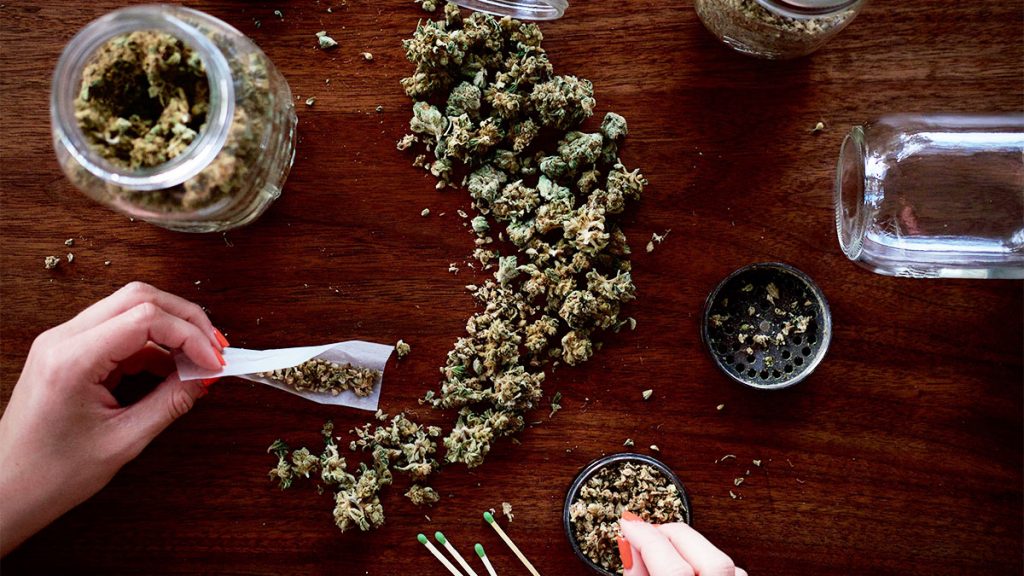
Dylan loves taking care of his plants: watching his seeds grow whilst patiently waiting for the moment to finally consume the final product. But, he is not the usual horticulturist. What Dylan does love cultivating in his back garden is cannabis, a crime punishable by up to 14 years of prison in Wales.
It is a long time that Dylan (not real name) advocates on behalf of the marijuana plant. A professional manager in the public sector, he started the Cardiff Cannabis Café in 2007. A branch of the UK Cannabis Social Clubs (UKCSC), they campaign for the legalisation of its use and cultivation.
Contrary to what someone may think, the group members are not a bunch of young pot-heads. The minimum age for joining the club is indeed 35 years old. Amongst the weed enthusiasts there are teachers, IT consultants, GPs.
He said: “We’ve got to normalise cannabis and educate people so that they’re not scared of it. People are terrified.”
His aim is making cannabis consumption safer. They produce their own product. “We don’t exist to make profit from selling cannabis. We exist purely to take our members and the patients we support out of the black market,” he said.
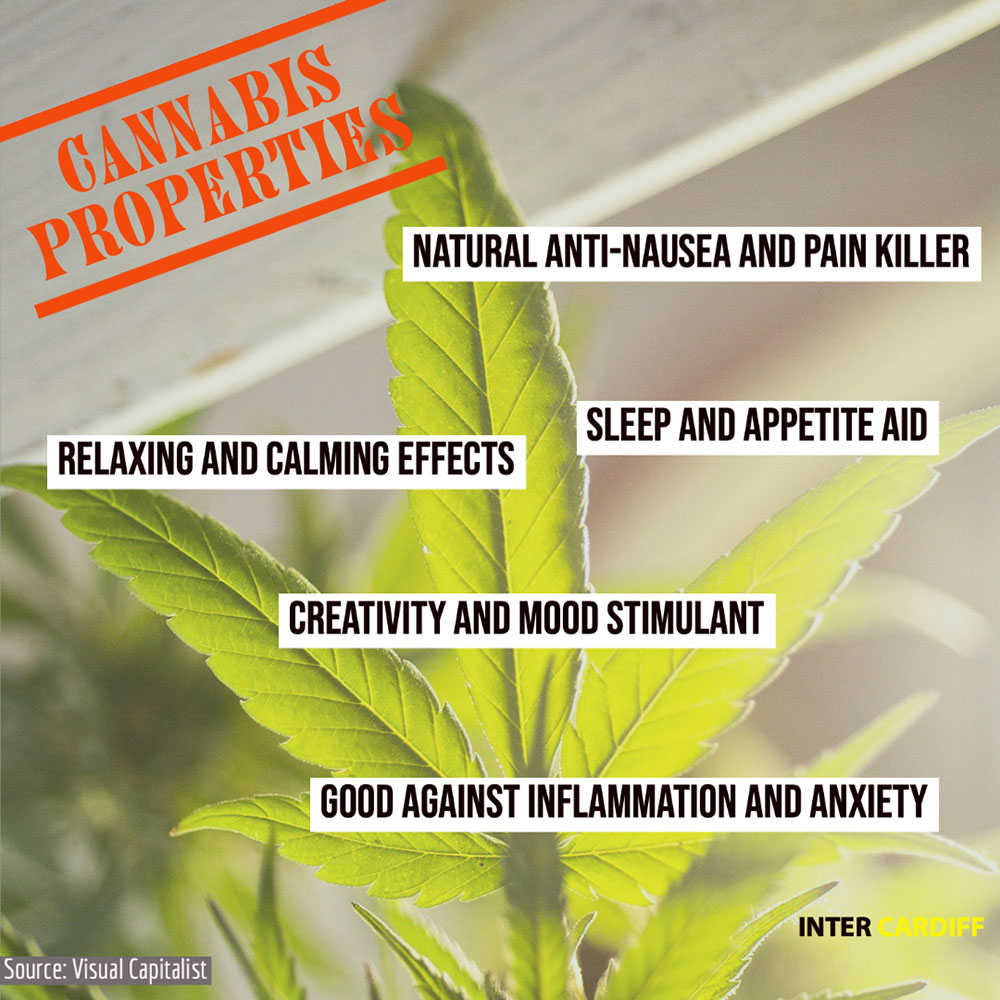
In 2018, the UK has legalised the use of cannabis for medical purposes. However, Dylan said this stigmatised even more consuming weed for reasons that are not matching with the legal requirements. “I don’t like the term recreational and I don’t like the term medicinal because it’s all the same cannabis. Some people will use it to relax and that is arguably a medicinal use,” he said.
The current system of medical cannabis is also overcomplicated and often inadequate. The price of prescriptions is sometimes so high that many still rely on the black market for their supplies. Plus, according to Dylan, people working in these clinics might understand the medical condition but they do not really understand how the plant works.
He also argues that another reason people are afraid of cannabis it is linked with what he calls ‘CBD cult’. On this point Doctor David Bewley-Taylor, Director of Global Drug Policy Observatory (GDPO) at the University of Swansea, said: “THC is always parked as the bad part of cannabis as it’s associated with recreational drug use and dangerous minorities.
“But, by just medicalising the plant and stripping out and focusing entirely on CBD, there is an argument that’s emerging that actually you’re losing the additional potential of cannabis as a plant.”
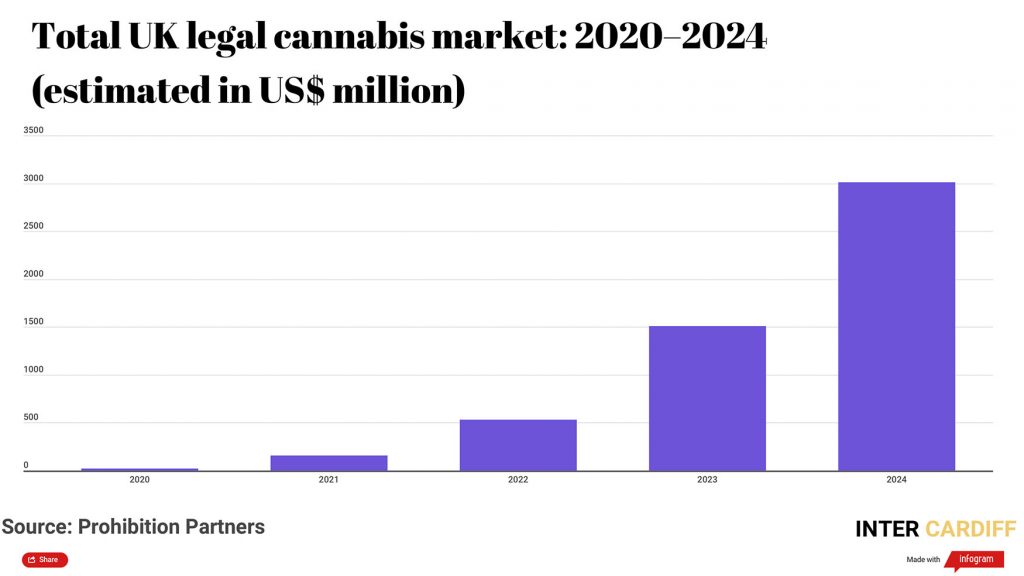
Around the world always more countries, like Canada and many US states, have recognised the cannabis market potential. Although, England and Wales are still far from it.
According to Chris Snowdon, Head of lifestyle economics at IEA (Institute of Economic Affairs), cannabis legalisation could represent a fantastic opportunity to cope with the expected economic recession that will follow the COVID-19 pandemic. He said: “It seems to be something that would make sense. I was a bit surprised that after the Great Recession of 2008 it didn’t come out.”
He published a report where he shows that if cannabis were legalised, the UK could gain more than £1 billion per year only in tax revenues. This figure comes without considering savings to public and criminal justice services.
“The amount of money I’m talking about in that report isn’t massive, but if you get a few ideas like that together it starts to add up. Seems to me much better to have that money in the hands of legitimate businesses and the government rather than black marketeers,” he said.
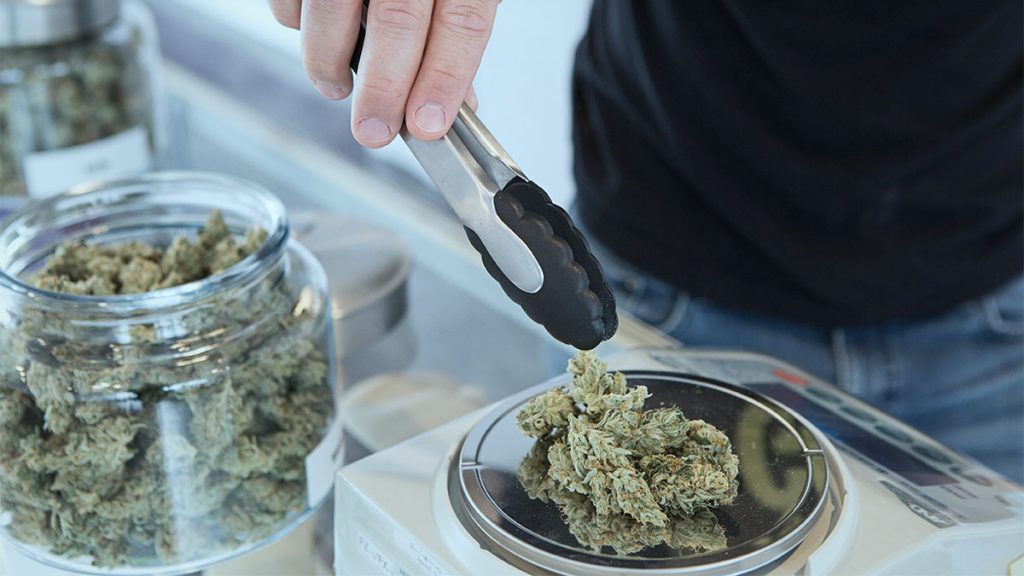
For Dylan from Cardiff Cannabis Café the legalisation of weed is not just a wise economic move. It is a choice of safety and ethics. “Do we want our young people accessing an unregulated markets run by criminals? Or would we rather that market to be brought up to the surface, put behind the counter at age restricted and quality controlled?”
Also according to Chris from IEA, it is prohibitionism that brings serious negative side effects. He said: “In the case of cannabis in the last 20 or 30 years, one of those has been to increase the potency and strength of the product. The development of skunk as the major part of the market has had negative consequences on mental health.”
The counter-argument argues that legalisation could increase the consumption and subsequently people addicted to the product. As a result, the added cost to cope with higher level of addiction could curb profit exceptions.
Replying to this, Chris said: “While I agree with people who say that cannabis has become more dangerous over the years, I think that it is just the result of prohibition. It actually makes a case for legalisation regulation and taxation even stronger. Even if there is an increase in consumption, I think you will still see a reduction in harm.”
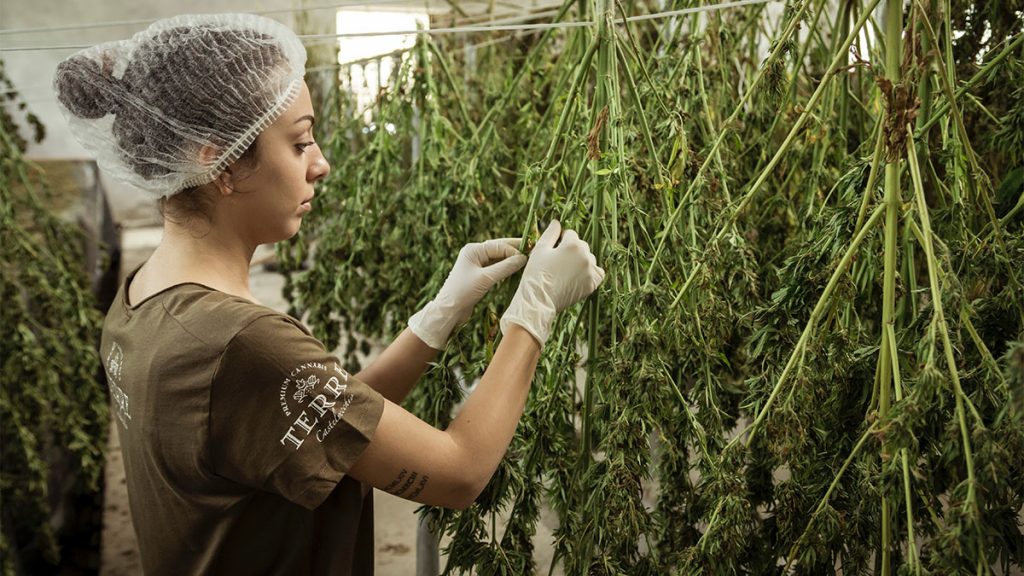
From the politics benches, Plaid Cymru, the Green Party and few MPs like Labour David Lammy said to be pro-legalisation. Although, Westminster seems not willing to open the debate yet.
“Public opinion is very much moved in favour of cannabis legalisation. So actually I think the politicians are a bit behind,” said Chris from IEA, “I suspect that there are going to be some other European countries do it first, and then we’ll see how it goes and eventually follow suit.”
Sadiq Khan’s will to launch a trial for decriminalise cannabis in London could then look as a step forward the right direction. Although, according to Chris decriminalisation leaves many problems unsolved.
“If you decriminalise it, you’re just telling the police not to enforce the law effectively. If you legalise it, you can regulate it. You can then sell it legally as a legitimate business,” he said.
Also a perfect legal activity as the production of hemp seems to be suffering this social stigma. Overcomplicated licensing process, poor infrastructure and outdated restrictions do not allow Welsh hemp farmers to exploit its full potential.
Dylan from Cardiff Cannabis Café said: “If we really want to re-engineer our economy, we need to pay farmers to grow hemp. We need to re-establish how we process and use the plant. If we’re really serious about being an environmentally responsible country, Wales needs to be farming hemp.”
